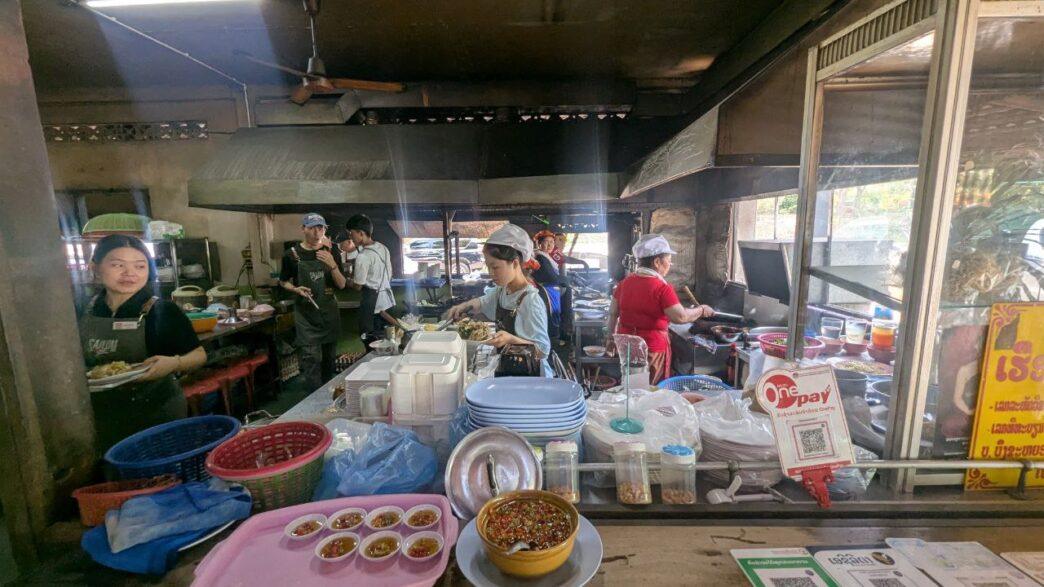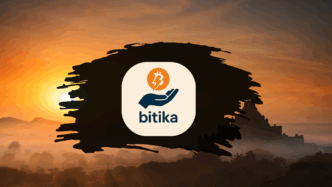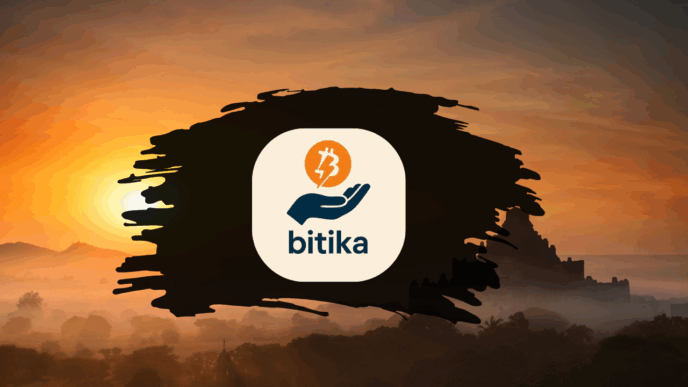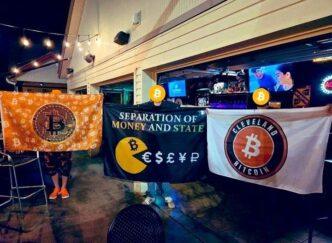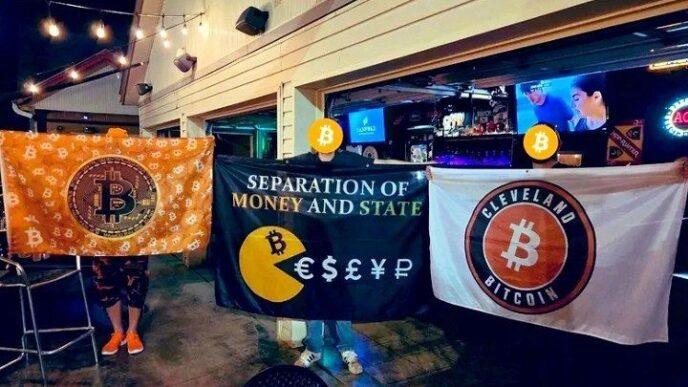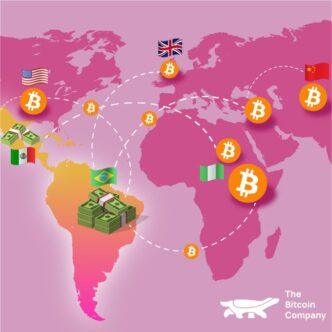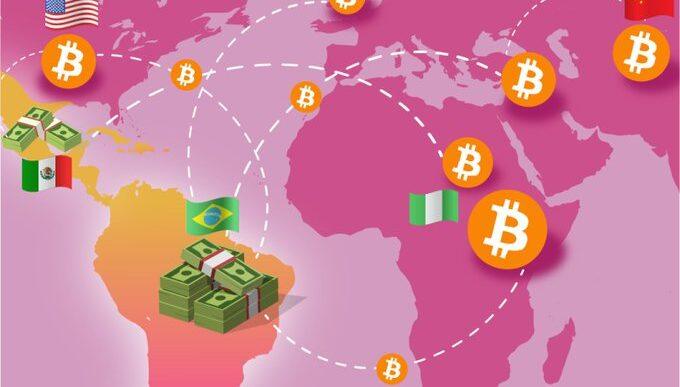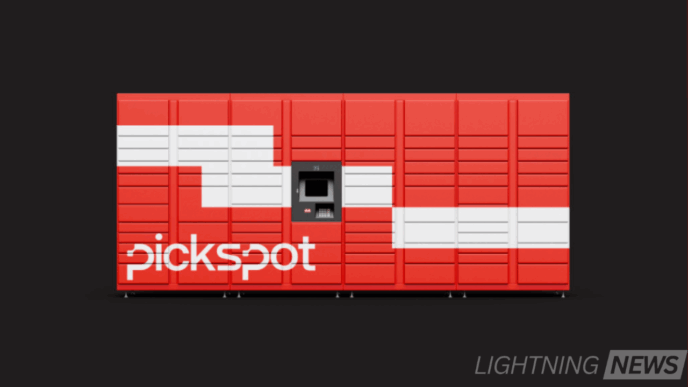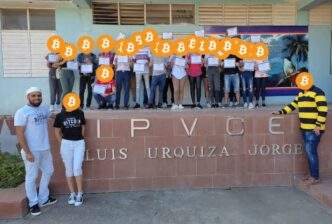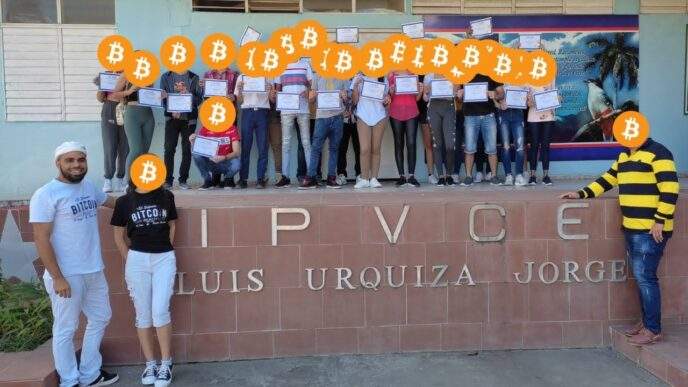Bitcoin adoption often gets the spotlight in high-growth economies and tech-forward regions. But in the quiet corners of the world, something just as powerful is happening; slowly, locally, and from the ground up. In Laos, a small yet determined community of bitcoiners is helping local businesses see the potential of a new kind of money.
In this interview, Lightning News speaks with Gio Battista, a bitcoin advocate, traveler, and storyteller who recently spent time in Vientiane exploring the real-life impact of bitcoin on small, local businesses. His experience offers a closer look at what grassroots adoption really looks like when it’s fueled by purpose, community, and hope.
First, Meet Gio: The Explorer Behind the Journey
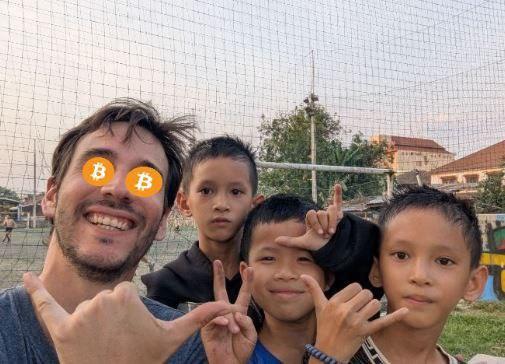
Before we dive deeper into bitcoin adoption in Laos, it’s important to understand the person helping us see it clearly.
Gio Battista isn’t just an observer, he’s been on the ground, connecting with locals, mapping merchants, and experiencing the movement firsthand. His perspective offers a human lens on a story that’s often told from afar.
- What first sparked your interest in bitcoin?
Well, my major is in Economics, International trade and Game theory. That’s what I studied and I also liked working in different positions before I jumped into bitcoin.
I used to work for a bank back in Europe, but lasted three weeks. I quit right after realizing how everything was rigged. I was being pushed to scam people in need who had no economic resources and also didn’t have the knowledge to make rational decisions when it came to their banking services.
I told myself I can make lots of money here by just selling my soul but then I asked myself, can I live with that? And then the answer was really simple. I said no to myself and that’s when I quit. Struggled a little bit to find my lane. So I moved to Thailand and here I met different people who were just speculating with crypto.
So I asked them, what is this about? And they were like, yeah, we’re making money. I was, oh, that’s cool. That’s cool. I have decided to start doing my own research.
I ended up watching videos of Andreas Antonopoulos, Max Keiser, some of the first bitcoin educators/ influencers, even though I didn’t like that term from back in the day. I would say Andreas is probably the first and most influential educator that I came across online, of course.
Then before I got to BoB Space, I met Leon. I helped him with Bitcoin news, really briefly before I moved back to Thailand. That’s when I met Piccolo, who was curating BoB Space, I met him through X (Twitter) spaces organized by Global Fest. Global Fest is an X (Twitter) account managed by Lucas, who’s a Swedish guy that interviews different communities in the world when it comes to bitcoin.
There was Piriya, who’s a bitcoin educator here in Thailand, a few others and myself. Right after that space, I messaged Piccolo and I asked him, “What are you doing with Bob? I would like to help”. That was after I got fired from a job I had in international trade because COVID was hitting us really hard.
So as you might know, international trade got disrupted completely. I told myself, OK, now you have some savings. Why don’t you try to do something you’re passionate about where you can have some sort of impact and where your values align with how you see the world, right? As I said before, I’ve been traveling for 10 years.
Dealing with banks and exchanges and things like fiat currencies has been a little bit of a pain in the ass. I still like to carry lots of coins from so many countries, like kilos and kilos. It’s like dust that will never be used. Once I understood bitcoin, which took me some time, I was, yeah, right on. That’s the thing.
- Why do you think it’s important to highlight lesser-known bitcoin communities around the world?
Communities are the driving force behind bitcoin movements globally. Without a strong local community, the chances of widespread adoption are significantly reduced.
Communities offer trust and support within a trustless network, many newcomers are more likely to engage when they see a group they can relate to, rather than relying on a random individual online.
Additionally, communities can tap into the diverse skills and roles of their members. Since bitcoin is decentralized by nature, it thrives when it incorporates a wide range of perspectives and backgrounds.
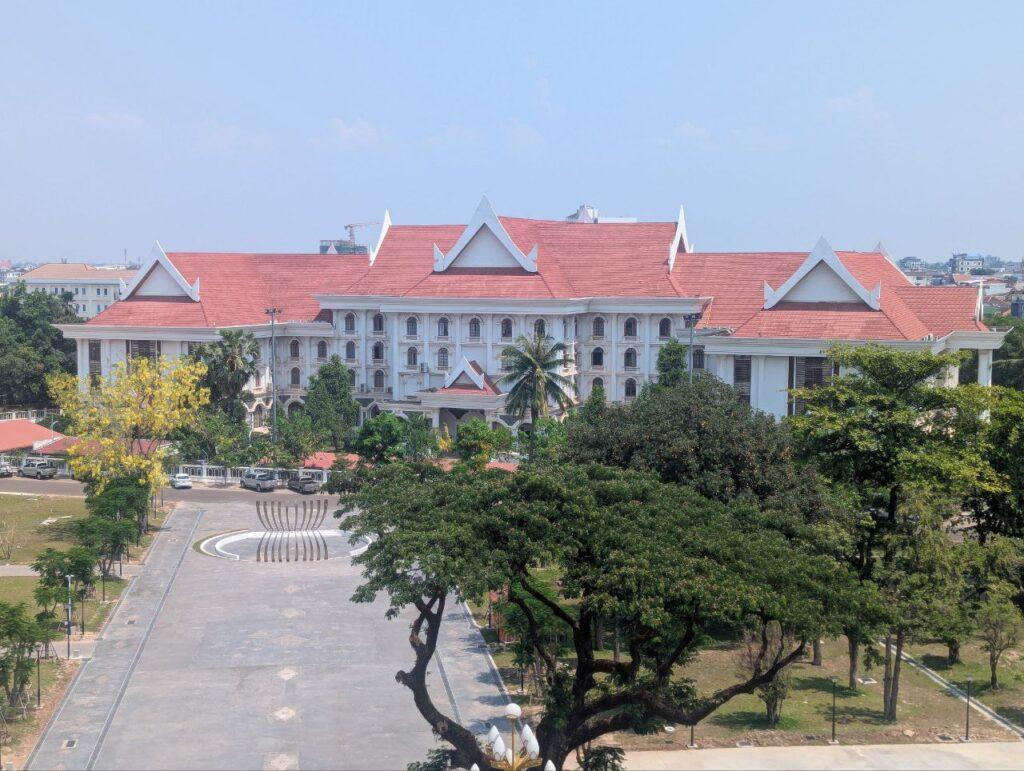
Discovering the Scenes in Laos
- What first caught your attention about bitcoin activity in Laos?
What initially caught my attention was the emergence of a strong core group of bitcoiners in Laos. Recently, they’ve begun to organize themselves into a grassroots movement, which is something the country really needs.
While they come from different backgrounds, they all share a common vision and are pushing in the same direction, toward greater financial sovereignty through bitcoin.
- What made you decide to explore the local scene in person?
I noticed some merchant activity in Laos listed on BTC Map, which sparked my curiosity.
That, combined with a friend I recently met who has ties to the scene, made me decide to visit in person and explore what’s really going on.
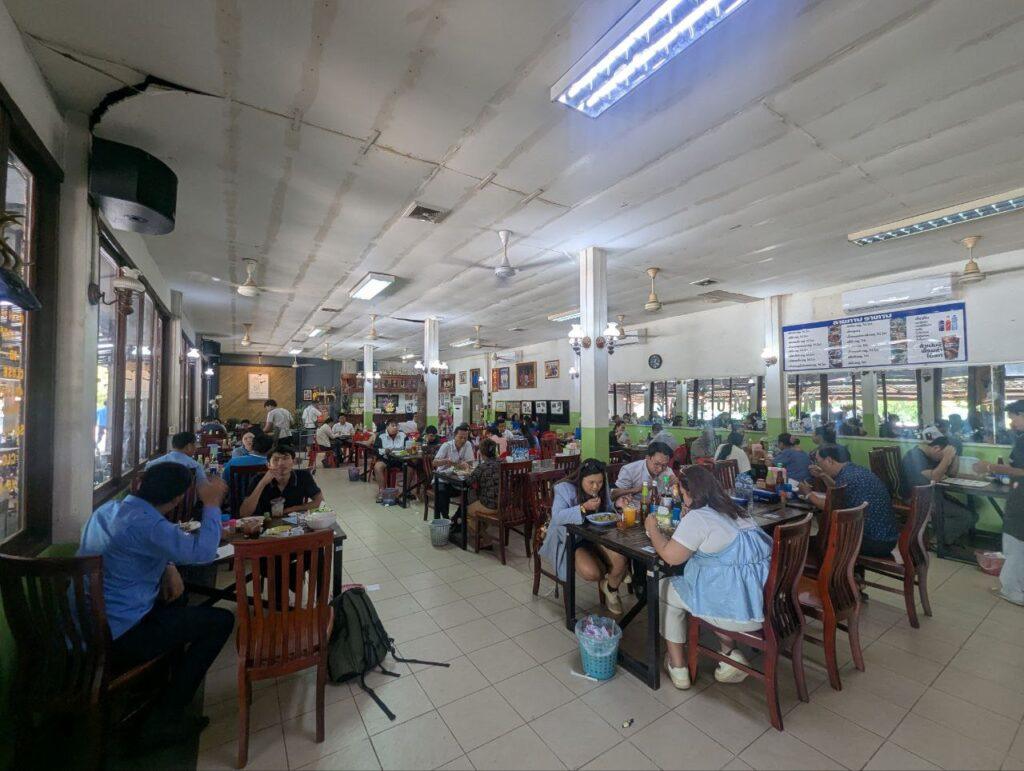
Bitcoin Adoption by Small Businesses
- What kinds of small businesses are currently accepting bitcoin in Laos?
A variety of small businesses are beginning to accept bitcoin, including hostels, bars, cafés, pet stores, and restaurants. It’s still early, but there’s visible momentum.
Local bitcoiners are already discussing how to create a merchant guide in the Lao language to make it easier for new vendors to come onboard.
- Are most of them run by locals, or are there also expats involved?
Most of these businesses are locally owned and operated. I did come across one pizza place that used to accept bitcoin and other digital currencies, but that initiative has been paused.
Overall, though, it’s a movement led by locals, which is really promising in terms of long-term adoption.
- What reasons do merchants give for accepting bitcoin?
One of the key reasons is the severe inflation in Laos. Over the past few years, the local currency has lost significant purchasing power, so much so that in some communities, people have resorted to bartering instead of using fiat. Price distortions are everywhere.
Merchants see bitcoin as a tool to preserve value and gain some economic stability. With a bit of education, it becomes clear to them how it can serve as a hedge against hyperinflation.
For context: reports from the IMF, World Bank, and Macro Trends show significant inflationary pressure in Laos, especially around food prices and daily essentials.
- How do these merchants feel about bitcoin after accepting it, any positive or negative feedback?
It’s still early days, so there hasn’t been a lot of concrete feedback yet. That said, the general sentiment is one of cautious optimism.
Merchants see bitcoin as a potential way out of the current financial instability, but they understand that results won’t be immediate. There’s hope, and that’s already a powerful first step.
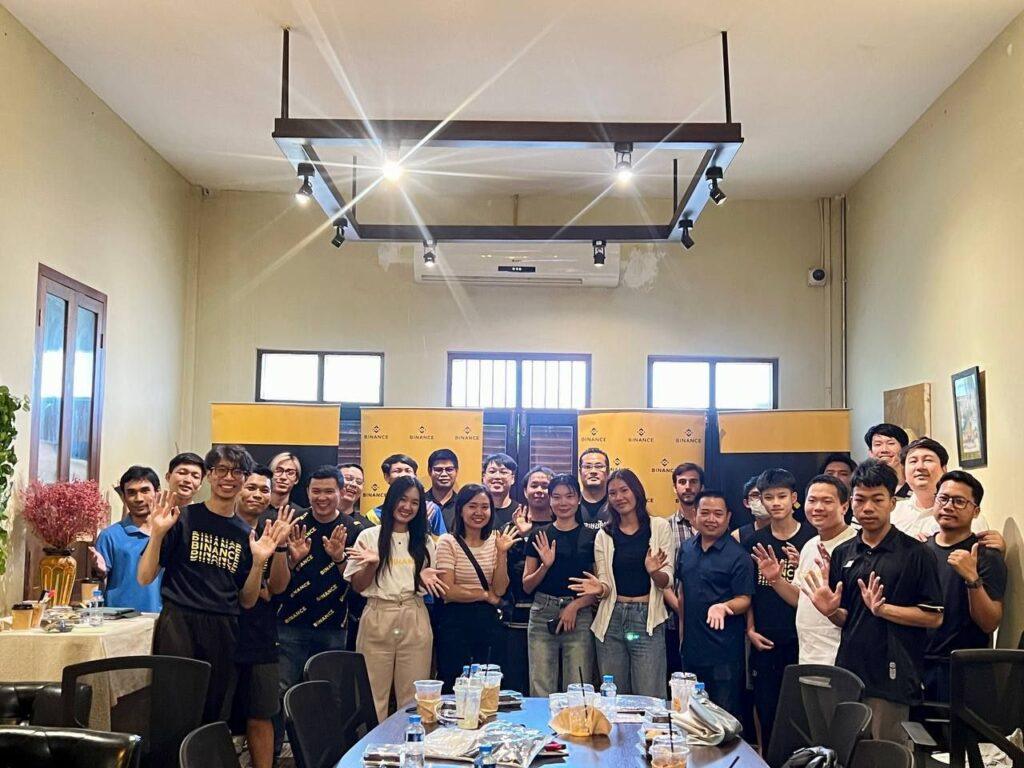
Visibility, Challenges, and Community Support
- How has the presence of these bitcoin-accepting businesses affected the visibility of Bitcoin in Vientiane?
The visibility has increased significantly. Tools like BTC Map are playing a huge role by giving merchants, customers, and observers a clear snapshot of local adoption.
These kinds of tools are underused but incredibly valuable. They provide a better lens into real-world bitcoin usage than endless debates about price action on social media.
- What are the biggest challenges these merchants face when accepting bitcoin?
One major hurdle is language. Many bitcoin wallets and apps don’t support the Lao language, which can make onboarding more difficult. Most merchants do speak Thai, which helps to some extent, especially when using apps that offer Thai language support, but it’s still far from seamless.
On top of that, the UX in some wallets can be unintuitive, particularly when merchants are trying to grasp key concepts like hot vs. cold wallets, Lightning, custodial vs. non-custodial solutions, and so on.
Fortunately, the local bitcoin community is stepping up to provide guidance and reassurance, helping merchants navigate the learning curve. Their presence makes a big difference.
- Based on what you’ve seen, do you think more small businesses will start accepting bitcoin soon?
Yes, I’m quite confident and optimistic. As education spreads and tools improve, I believe more businesses will see the benefits and join in.
It’s a net positive for the country, economically, socially, and even politically.
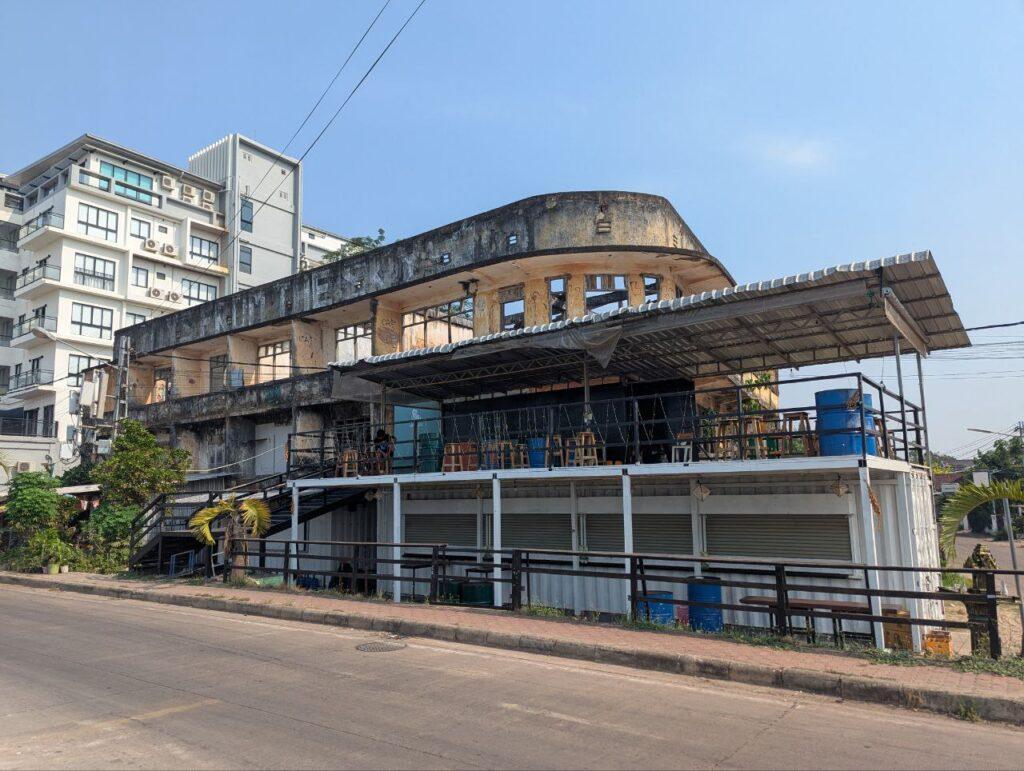
Broader Impact and Final Reflections
- What kind of impact could this have on the broader community in Laos?
It’s still too early to predict with certainty, but the foundation is being laid for something meaningful. These small but intentional steps are what create lasting change.
Historically, Laotians haven’t had many tools to protect themselves from inflation or economic mismanagement. Even assets like gold are difficult to access freely due to constraints imposed by commercial banks.
Bitcoin changes that. It gives people a direct, censorship-resistant, and open financial option. It’s not a silver bullet, but it offers hope and that’s something deeply needed.
- How has your experience in Laos changed or deepened your views on bitcoin?
Being in Laos really grounded my understanding of bitcoin. It’s one thing to talk about financial sovereignty or remittances online, but seeing how disconnected people are from the global financial system makes it hit differently.
In Vientiane, I spent time with a few locals who welcomed me like family, we’d sit around for hours just talking, sharing food, going on motorbike rides, and really being present with each other.
There was no rush, no constant checking of phones, no pressure to “optimize” every minute. That kind of low-time preference mindset, naturally embedded in their way of life made me reflect on how much we’ve lost in the West, where everything feels so rushed and transactional.
It also made me realize that bitcoin isn’t just about tech or finance; it’s about community, resilience, and regaining control of your time and energy. That experience reminded me why I care about bitcoin in the first place.
- What keeps you motivated to share these stories and observations with the world?
What keeps me going is the belief that bitcoin’s value proposition is here to stay and that more people need to understand how transformative it can be, especially in economies devastated by hyperinflation or financial repression.
I’ve seen firsthand how bitcoin can offer real alternatives in places where people have few options. These stories matter because they cut through the noise and hype, showing how bitcoin actually impacts lives and fosters self-organization.
Like John Nash said, “Ask yourself what’s best for you and for the group.” That’s how you find the equilibrium. Many bitcoiners confuse self-interest with the idea that “everything is good for bitcoin,” but they often miss the second part, the part where aligned efforts can create compounding synergies.
By focusing only on individual gain, we miss the deeper value that emerges when we contribute to the collective. Sometimes, doing what’s best for the group unlocks even greater opportunities for the individual, not the other way around. That mindset shift can turn isolated actions into something far more powerful and sustainable.
Life’s not easy, and bitcoin isn’t a magic fix, but it gives people tools and choices they didn’t have before. As long as we keep that in mind and stay grounded in the realities people face, I believe bitcoin still has a long way to go and a lot of good to offer. To support the movement you can do so at: https://geyser.fund/project/satsnfacts.


